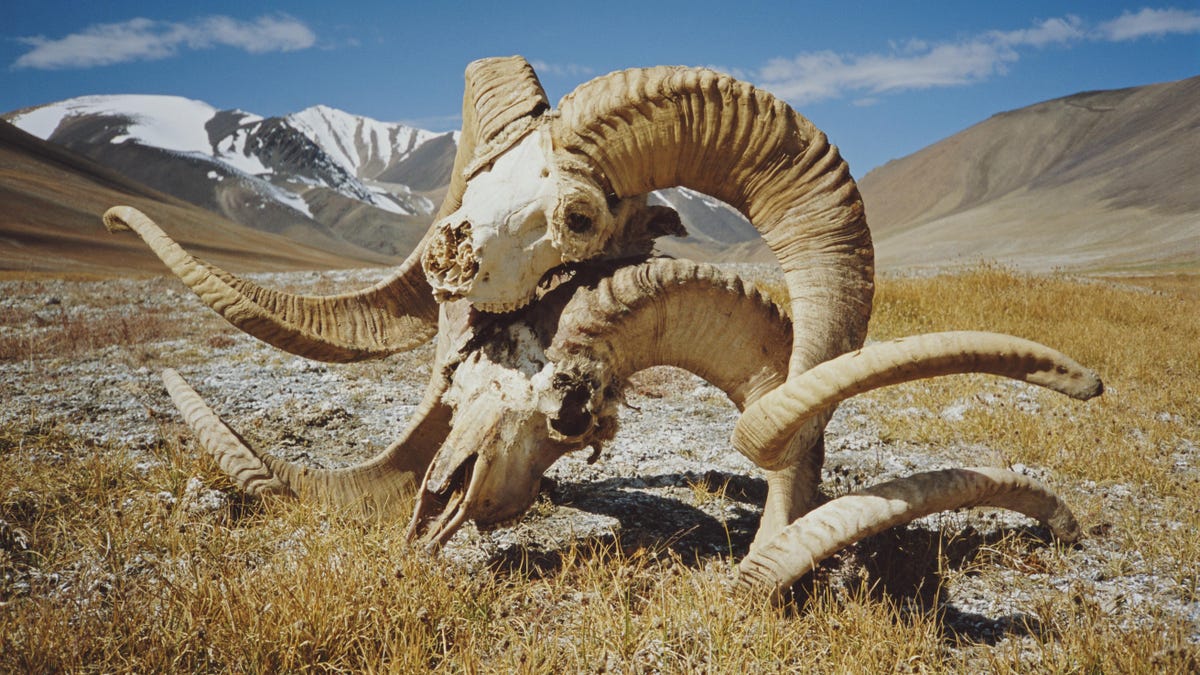How big are these sheep? An average male can weigh over 300 pounds with horns over 5 feet wide, giving them the largest sheep horns on the planet. The sheep are endangered and protected by both international treaties and U.S. law. Montana also forbids the import of these foreign sheep or their parts in an effort to protect local American sheep from disease.
The article claims he was charged under the Lacey Act, which is intended to reduce invasive species. However, he wasn’t bringing in live animals with pathogens or whatever, he was bringing in animal tissue for cloning purposes.
So this brings up an interesting question, was he charged for importing the tissue, selling the semen, or producing the animals? If the last was okay, could someone get around this in the future if we have a way of synthesizing DNA from a digital copy? Is the crime that they weren’t properly contained? Where exactly is the line here?
On the one hand, I applaud this guy for ingenuity and in general prefer to have people breed endangered and threatened species to help reduce poaching. On the other hand, he should’ve known this would be investigated so commercializing it would be difficult. Regardless, I don’t particularly care if this guy is convicted, I’m more interested in the fringes of this topic as cloning becomes more and more viable for private parties.
There must be more to it from what they said he did that was illegal. Not a lawyer though:
An unnamed accomplice of Schubart kicked off the decade-long scheme by illegally bringing biological tissue from a Marco Polo sheep, the largest sheep in the world, from Kyrgyzstan into the U.S. in 2013, according to prosecutors.
How big are these sheep? An average male can weigh over 300 pounds with horns over 5 feet wide, giving them the largest sheep horns on the planet. The sheep are endangered and protected by both international treaties and U.S. law. Montana also forbids the import of these foreign sheep or their parts in an effort to protect local American sheep from disease.
The interesting thing is that American sheep shouldn’t be subject to disease if they’re using cloned specimens and all parts are disposed of properly. It’s probably technically against the law, but it seems there should be an exemption for conservation (i.e. if hunters can hunt Argali on a US ranch legally, most probably wouldn’t bother going to Asia).
I just wonder what the legal process is here, if there is one. Could he have gotten a permit to raise these sheep for conservation purposes? For example, this story about a private conservationist trying to save rhinos from poaching makes me extremely sad because the best way to stop poaching is to fill the demand through legal, sustainable means so poaching is no longer profitable. I’m still not a fan of de-horning rhinos, but it’s better than them being hunted to extinction.
So I wonder if this form of conservation has or will have a legal path.
I doubt that an individual will ever be able to do it legally, the government tends to ban stuff they don’t understand or know how to control. Especially if it’s international stuff.
This is the best summary I could come up with:
An 80-year-old man in Montana pleaded guilty Tuesday to two felony wildlife crimes involving his plan to let paying customers hunt sheep on private ranches.
“Schubarth then implanted the embryos in ewes on his ranch, resulting in a single, pure genetic male Marco Polo argali that he named ‘Montana Mountain King’ or MMK,” federal authorities wrote in a press release.
Schubart also forged veterinarian inspection certificates to transport the new hybrid sheep under false pretenses, and sometimes even sold semen from his Montana Mountain King to other breeders in the U.S.
Schubart sent 15 artificially inseminated sheep to Minnesota in 2018 and sold 37 straws of Montana Mountain King’s semen to someone in Texas, according to an indictment filed last month.
“This was an audacious scheme to create massive hybrid sheep species to be sold and hunted as trophies,” assistant Attorney General Todd Kim from the Justice Department’s Environment and Natural Resources Division said in a press release.
“In pursuit of this scheme, Schubarth violated international law and the Lacey Act, both of which protect the viability and health of native populations of animals,” Kim continued.
The original article contains 605 words, the summary contains 186 words. Saved 69%. I’m a bot and I’m open source!


